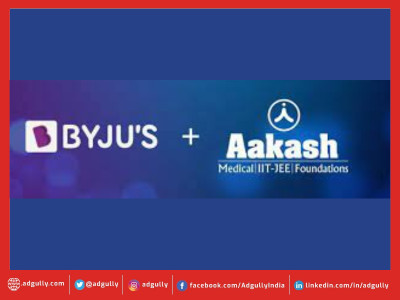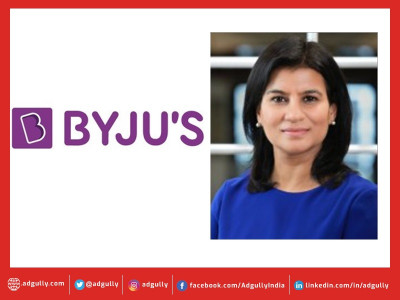Understanding the burgeoning world of online education
Government mandated lockdown has impacted delivery of traditional education services with schools and colleges shut. This has led to acceleration in the adoption of edu-tech services and created a new demand for online education. Edu-tech players like BYJU’s, Unacademy, Toppr, upGrad, Vedantu, who have often played a supplementary role in a student’s life, have gained a greater share of importance.
The biggest edu-tech player, BYJU’s, claims a 3X increase in the number of students accessing their platform, adding up to 57 million students on their platforms. While most start-ups are scrounging for VC funding,
BYJU’s has earned Decacorn status (valuation of $10 billion) after a funding round led by Bond Capital during this tough period.
Read Also: BYJU’S and the Indian Cricket Team come together to remind you to Keep Learning
Vedantu, a tutoring platform for students, has seen 5X growth on their platform every month during the lockdown. Shivani Suri, Chief Marketing Officer and Category Head, Vedantu, informed, “The number of subscribers on our platform has grown exponentially to 1.2 million with revenue increased by 80 per cent. We are seeing good engagement on our platform with an average stickiness of 42 per cent, as compared to 54 per cent of a paid user. We are also seeing a high session attendance of 70 per cent from the free users. On an average, we are seeing each student spend 18-20 minutes per live class daily.”
Test preparation platform, GradeUp, saw a 20-25 per cent hike in student enrolment, especially for JEE and NEET exams. Depending on the category, test series on the platform saw 40-50 per cent more engagement than normal. Toppr, aimed at youth in the 5th to 12th standards, has growth four-fold in paid subscriptions and their web traffic rose to 25 million sessions last month.
The delivery of educational services online has moved from convenience to necessity. Schools and universities have begun conducting classes, sharing reading material, and solving doubts via video conferencing, WhatsApp and calls. State Governments are transmitting educational programmes via TV and radio channels. This scenario has highlighted need gaps in the online education ecosystem that players must address to accelerate adoption.
The demand for live online classes, mock tests, live doubts, kids’ learning skyrocketed during the lockdown months. Zishaan Hayath, CEO and Founder, Toppr, observed, “We have seen an exceptional increase in enrolment in Toppr Live Classes in the last two and a half months. In March-April, we saw a rise of over 200 per cent in students’ attendance in Live classes along with an increase of 300 per cent in watch time (minutes). From April to May, the attendance metrics jumped by 280 per cent, and the watch time increased to 310 per cent. Even learning modules like Live Doubts, Adaptive Practice and Video Classes witnessed over 2x increase in engagement.”
Test preparatory platform, Oliveboard, which caters to students who want to join Government service, saw 15-20K students using their free live mock test service every day. Abhishek Patil, Co-founder and CEO, Oliveboard, shared, “We have always seen demand from Tier 2 and 3 students choosing government services exams over the private sector. What has changed recently is that due to the time available, students have invested time in preparing for government sector exams. During the crisis, the stability that has always been associated with government jobs is all the more emphasised.”
However, not everything is hunky dory as live coaching app Goprep has witnessed a 20 per cent drop in test preparation for exams where there is no defined schedule. Vibhu Bhushan, Founder, Goprep, believes, “There will be a huge drop in attempts for global exams like SAT/GRE/GMAT/ TEOFL this year. Exams that are scheduled or based on notifications will revive when the situation gets better and these agencies start conducting exams.”
The sector has also moved towards consolidation, in a race to become the one-stop platform for all educational services. Unacademy acquired a leading postgraduate medical entrance exam preparation platform, PrepLadder. It recently acquired Kreatryx that offered multiple products for GATE and SSC CGL aspirants. Media reports also indicate the leading edu-tech player, BYJU’s is in talks to acquire doubt solving search engine Doubtnut and kids coding platform White Hat Jr.
To attract new users to their platform, these players are offering many of their products for free or lowering their subscription prices. They are marketing their shorter duration packages and free live classes to encourage sampling of their platforms. Ultimately, “product experience will play a crucial role in helping a family to make a decision”, remarked Toppr’s Hayath.
Many of these players have begun aggressively hiring from the existing talent pool of educators to meet the increase in demand from students for services like live classes and doubt solving. Some players like Oliveboard have set up studios at the homes of faculty to ensure smooth delivery of online classes. On the tech front, players have to increase the resolution options for their video lectures as many students have complained about connectivity issues.
Technology like Artificial Intelligence and Machine Learning will play an important role in bridging the demand for education services and the ability to match this demand. Personalised learning, discoverability of content, and determining the quality of learning will have to be addressed by edu-tech players.
Due to the lockdown, the potential customer base for online learning has seen an expansion. Since most buyers are already in the consideration phase, some edu-tech players are relying on word of mouth and digital marketing strategies like SEO to increase adoption. Meanwhile, players like GradeUp have launched a national campaign ‘Padhai Nahi Rukegi’ on TV, print and digital to increase their brand awareness. The challenge is to woo both the customer (student) and the buyer (parent).
According to Mrinal Mohit, Chief Operating Officer, BYJU’s, “Because of the on-going crisis, online learning programs have certainly witnessed a surge in the uptake, relatively more organically than ever before. Students have always loved learning from our app. The biggest change has come in the mindset of parents – they are becoming more accepting given that they have seen how good and beneficial it is for their children. The percentage of parents downloading our app has increased drastically.”
Since June, BYJU’s has been airing its ‘Ghar Ghar Ki Kahani’ campaign nationwide, which speaks about the struggle of learning at home during the lockdown. Remarking on their strategy, Mohit shared, “While we will continue to actively create awareness about this segment, our focus will always be on boosting our word-of-mouth outreach by providing the best learning experience to our consumers.”























Share
Facebook
YouTube
Tweet
Twitter
LinkedIn